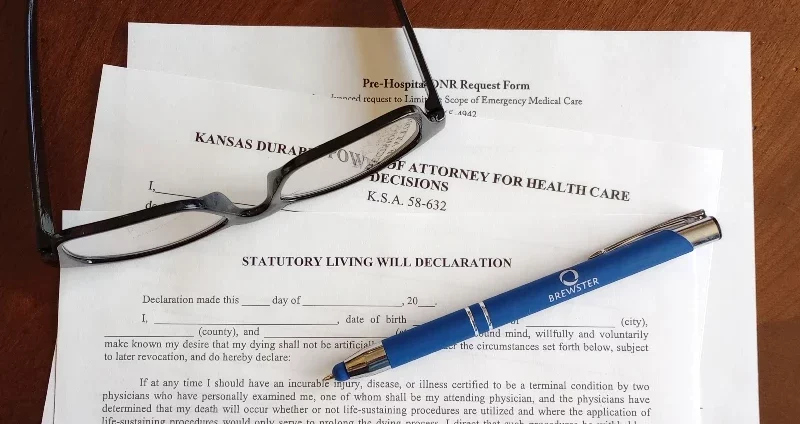
Why They Matter and Why You Should Care
This post hopes to impress upon the reader the importance of having advance directives and the equal importance of knowing who also needs copies of those documents.
It is important to make plans for unexpected circumstances where you may not be able to make decisions for yourself. This is the only way that others will know your wishes for treatment in a medical crisis or your quality-of-life concerns at the end of life.
These documents do not need to be drawn up by an attorney. They can be created and downloaded from a legal entity online (links at the bottom) and then notarized, at which point they become legal. The documents dated most recently will be honored.
These documents are important for adults of any age.
Durable Power of Attorney for Health
This is also known as a DPOA directive. It gives the right to make decisions on your behalf to the person of your choice in the case that you are unable to make decisions for yourself. When choosing your agent, consider that this person may need to make judgement calls in a medical situation. You can also assign alternate agents in the case your primary is unable to fulfill his/her duties.
There is also a Durable Power of Attorney for Finance with the same duties for making decisions regarding financial affairs if you are unable to do so.
Living Will
Along with the DPOAs, there is a Living Will. This is a legal document that states your wishes regarding medical treatments that you would want administered and those you would not want in order to keep you alive. The downloadable document will list the basic choices in these areas of your quality-of-life care.

DNR (Do Not Resuscitate)
You do not need a Living Will or a DPOA to have a Do Not Resuscitate (DNR) order. This is an order stating that, in the event of cardiac or respiratory arrest, you do NOT wish to have CPR performed in any form. You may have these wishes documented in your Living Will, but it is still a good idea to create a separate DNR order.
"Without a DNR order in place, a guardian must be able to show that the order would be in the best interests of the patient in order to prevent resuscitation."1
In Conclusion
"Without a living will, proxy, or other form of advance directive, it is often the patient’s spouse or closest biological family member who will be tasked with making medical decisions. This decision-maker only has the authority to make health care decisions where there is clear and convincing evidence that the patient would have wanted those decisions to be made. Without such evidence, even a patient’s spouse or parents cannot direct the withdrawal of life-sustaining treatment."1
Making crucial medical decisions for a loved one is difficult, but having the Advance Directives completed and on file with your attorney, physician, trust officer, retirement community and with loved ones helps to assure that your wishes are known and honored.
Online Advance Directive Forms
Complete and download the form online:
http://bit.ly/kansas-advanced-directive-forms
Download blank forms:
https://bit.ly/3VDGmx5
Further Reading
https://www.mayoclinic.org/healthy-lifestyle/consumer-health/in-depth/living-wills/art-20046303
https://bit.ly/4aAdv1a
https://prepareforyourcare.org/en/entry



